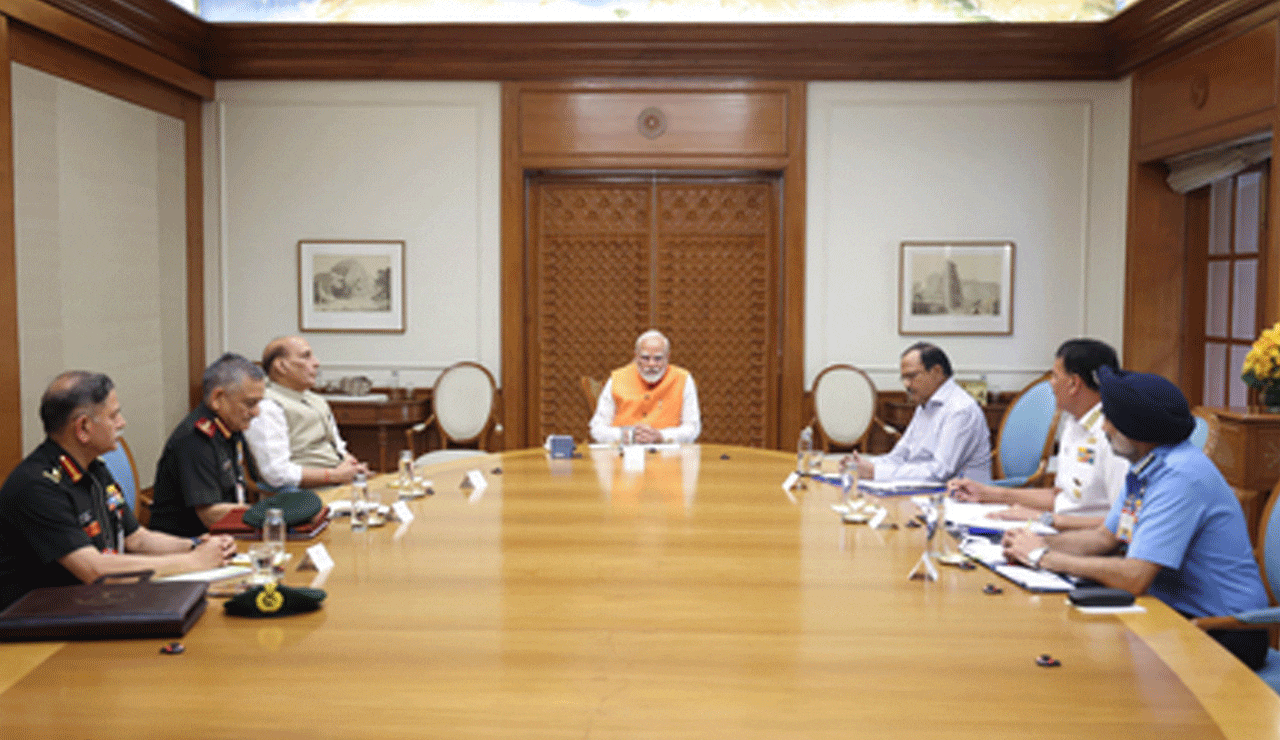PM Modi Holds High-Level Meetings with Rajnath Singh, Ajit Doval, and Chiefs of Army, Navy, Air Force
Prime Minister Narendra Modi on Tuesday chaired a high-level emergency security meeting to address the escalating threat of cross-border terrorism, particularly in the wake of the brutal Pahalgam terror attack that left 26 civilians dead.

New Delhi: Prime Minister Narendra Modi on Tuesday chaired a high-level emergency security meeting to address the escalating threat of cross-border terrorism, particularly in the wake of the brutal Pahalgam terror attack that left 26 civilians dead. The meet has sparked intense speculation about an imminent and decisive military response to Pakistan-based terror outfits.
Table of Contents
Top Security Brass in Attendance
The emergency meeting saw the participation of key defence and security officials including Defence Minister Rajnath Singh, National Security Advisor Ajit Doval, Chief of Defence Staff General Anil Chauhan, and the heads of the Army, Navy, and Air Force.
According to sources, the atmosphere was one of urgency and purpose, as actionable intelligence was reviewed, and military options were discussed to dismantle terrorist infrastructure across the border.
Also Read: Delhi Govt Approves Landmark Bill to Regulate Fees in Private and Government Schools
Pahalgam Attack: A Turning Point?
The meeting comes in the aftermath of the Pahalgam attack, where Pakistan-backed terrorist group Lashkar-e-Taiba is suspected to be the orchestrator. The attack primarily targeted tourists and has heightened public and governmental pressure for a strong retaliatory action.
Military on High Alert
In response to the growing threat, Indian armed forces have been placed on operational readiness along the Line of Control (LoC) and the international border. Surveillance drones, satellite monitoring, and electronic intercepts have intensified across Pakistan-occupied Kashmir (PoK) to track terror movement and launchpad activities.
Strategic Measures Already in Motion
The Modi government has already initiated diplomatic and strategic countermeasures, including:
- Suspension of the Indus Waters Treaty
- Expulsion of Pakistani nationals with short-term visas
- Increased surveillance and intelligence gathering
These steps are part of a broader plan to isolate and neutralize state-sponsored terrorism emanating from Pakistan.
A Thunderous Response on the Horizon?
While the government remains officially tight-lipped, insiders suggest that a decisive military strike could be imminent. PM Modi’s earlier statement — vowing to chase down terrorists and their backers “to the ends of the earth” — appears poised to translate into direct action.
